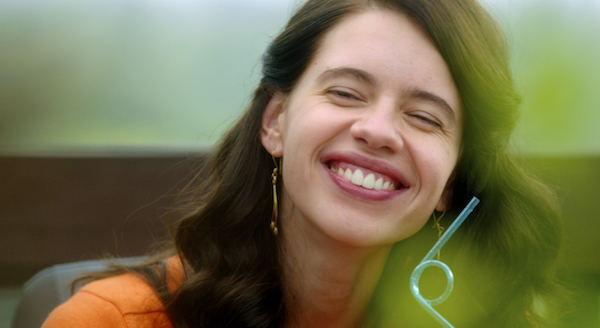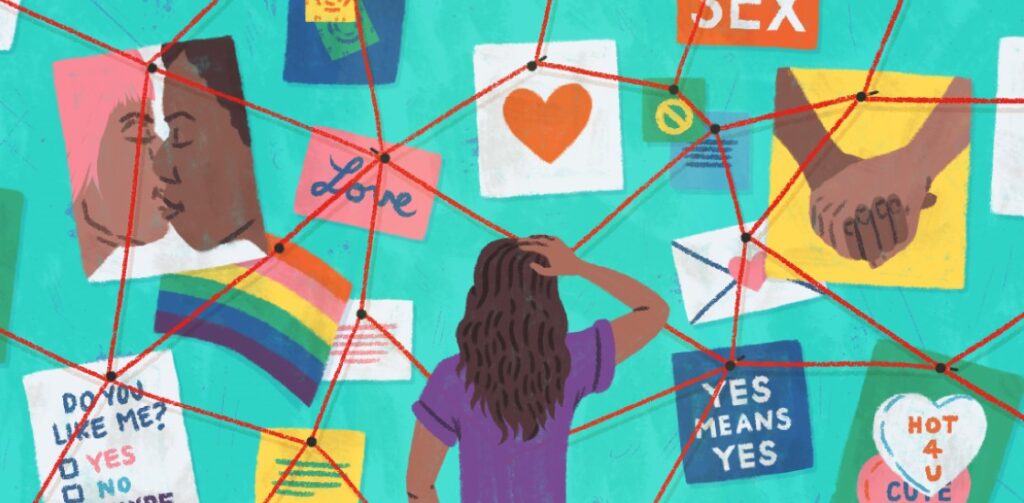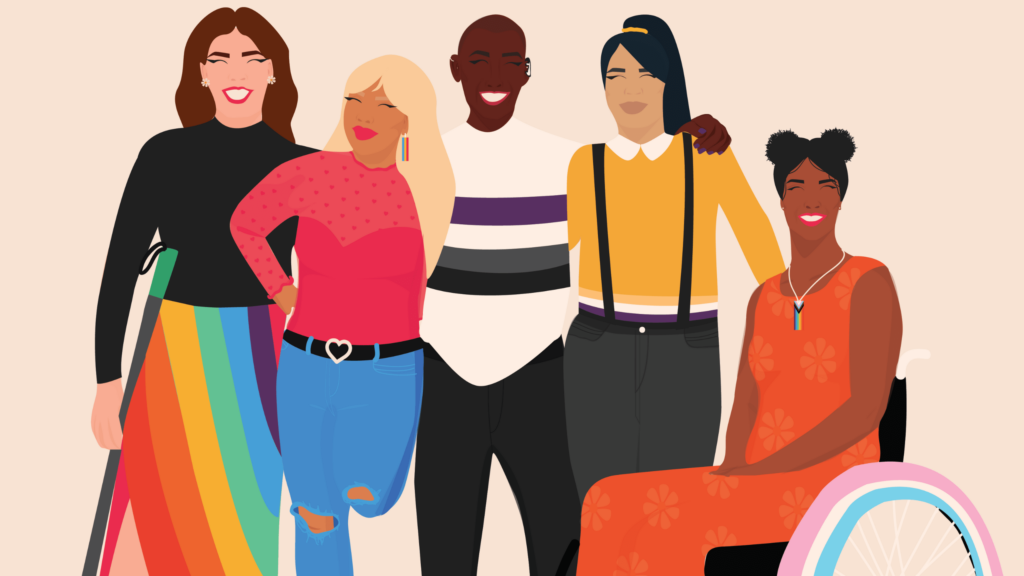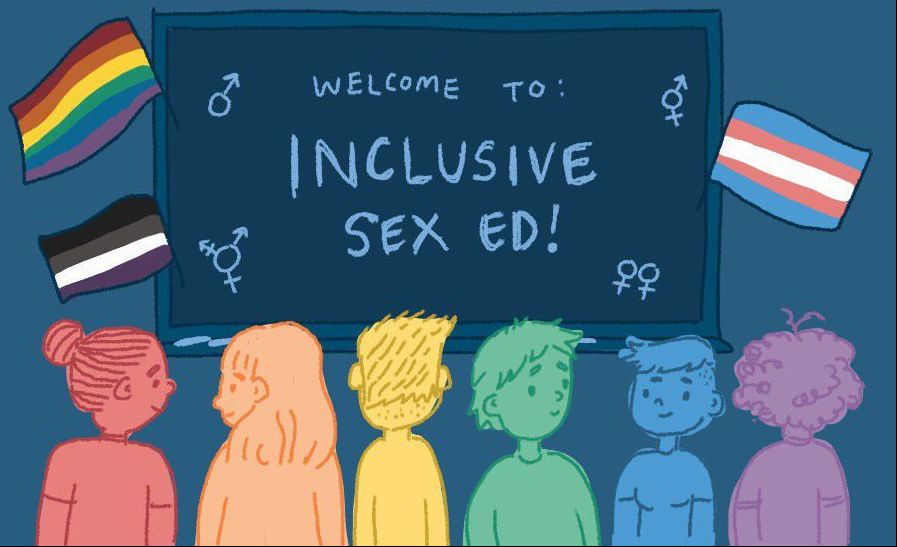Defying Delusion – ‘Margarita With A Straw’
7.8 billion people on earth. Imagine the amount of sex we are having. How many people hug and kiss every day. And how many fall in love. Imagine how many casually hook-up. All different. Someone’s brown, someone’s yellow; someone is white and someone is black. You could be tall, you could be short or maybe healthy or skinny. You may be rich or you may be poor. These differences are mere labels. No matter how controversial of a psychologist Sigmund Freud was, he said, “the only unnatural sexual behavior is none at all” (barring asexuality). A physical or mental disability is no barrier to one’s sexuality.

Laila’s Story
Margarita with a Straw is an innocently made one of its kind movie. Perhaps something you wouldn’t find in the flooded Indian Cinemas depicting reality, hardly ever. You get a wholesome experience when you watch this movie about a young womxn with cerebral palsy. From her very first heartbreak in Delhi to the time she loses virginity in New York, you see a discovery. From kissing for the first time to coming out to her mother, you see a journey.
Cerebral Palsy is a congenital disorder affecting movement, muscle tone, and posture. For traveling around, Laila would have to use an automatic wheelchair. Often, she would be seen through a pity lens. By giving differential treatment, Laila would be annoyed. She wanted to be treated just the way others are and on being given a prize at a music competition because of her disability you see Laila furious as ever.
Laila is adventurous. Unstoppable and fearless. Her disability never becomes a barrier when she is exploring her sexuality. Sometimes yes she struggles with self-image and thinks she isn’t as worthy of love as others around her might be but she overcomes that with the help and support of her dynamic mother and an amazing partner. You will fall in love with the cute bathroom conversations and the mother-daughter bond.

Rainbow and Disability
There’s more to this beautifully put story and that is the idea of self-identity and self-acceptance. Knowing yourself and your needs is an important part of one’s lifestyle. We stumble on occasions of self-doubt and confusion and also dilemma strikes us hard when it comes to choosing our partner. Jailbreaking from the cage of presumed normal is hard. Belonging to the rainbow community is a blessing as it is warm and welcoming but not necessarily seen as comforting by ones against it or the ones unaware of it.
There’s recognition for special needs; some people benefit from it and it is a justified move towards promoting equality. On the road to advancement wherein, we are trying everything to nurture inclusivity, it’s truly unfortunate how sex education models aren’t as inclusive as they should be. Disabled persons too are sexual citizens and deserve assistance; meaning, comprehensive sex education inclusive of modules for the disabled.
A common stereotype that revolves around disability is that all disabled people are asexual. It is a misconception. They too have their own set of desires and ways of expressing them. History plays an important role in determining this myth. Time-traveling 2000 years in the past it would be considered a sickness to have sexual pleasures and fantasies. A concept like such which was already linked with the “sin” pushed disabled people further back from expressing their sexuality.

Misbeliefs and Progress
The faulty hypothesis became a misbelief when some disabled people were unable to attain orgasm. Orgasm was seen as the symbol of pleasure hence giving the conclusion that these people were asexual. It was about time that all these people were thought to be child-like which made the roots grow deep in the soil and planting negligence. They were denied resources for development. Marginalization followed and self-image suffered. As society becomes more accepting of sex, this issue still remained unspoken. Even today it is unlikely for parents to allow their disabled child to enjoy freedom in sexual encounters. Mainstream media hardly ever portrays this community as what they say “sexy.”
I would like to add that progress is there, it would be wrong of me to blame the media for not showcasing people how they want to be seen. Something that changed my perception about media being all about exaggerated unrealistic sexual pleasure was the July 1987 edition of PlayBoy Magazine. Ellen Stohl posed semi-nude for the cover as a disabled model. She said, “Sexuality is the hardest thing to hold onto, This is not to say that (the disabled) are not capable but rather that society’s emphasis on perfection puts a definite damper on self-esteem.’’

De-Mystifying Stats
Margarita With A Straw made me realize the need for sex education is greater than ever. 15% of the world population is disabled. In India, we are already lacking sex education but for people without disabilities, it is much easier to approach and seek help. I would like to expose you to a few myths and then provide the statistics that falsify them.
“Individuals with disabilities don’t need sex to be happy.”
“Individuals with disabilities are not sexually attractive.”
“Individuals with disabilities are over-sexed.”
“Individuals with disabilities have more important needs than sex.”
“Individuals with disabilities don’t need sex education.”
“Individuals with disabilities can’t have real sex.”
“Individuals with disabilities, particularly those with intellectual disabilities, should not have children and should not be allowed to have children.”
Now, stats say that 50% of disabled persons aren’t involved in sexual activity. What about the rest 50%? Don’t we owe a better and clearer explanation? The need is real. Comprehensive Sexuality Education should be more open to aid this community find pleasure.
Featured Graphic Design: Vaibhavi Pant
Author

